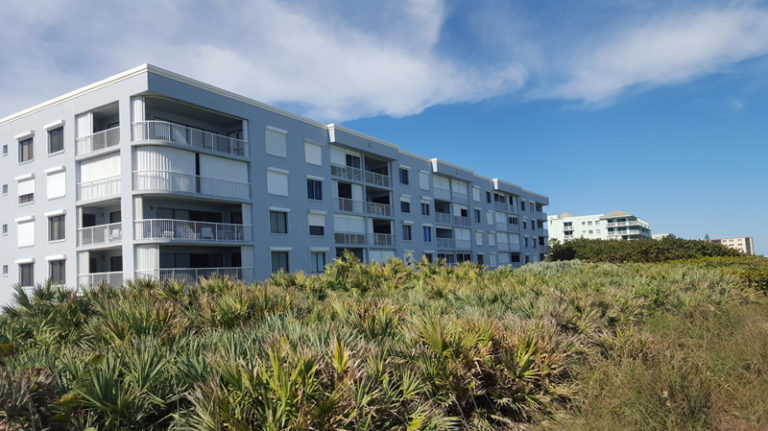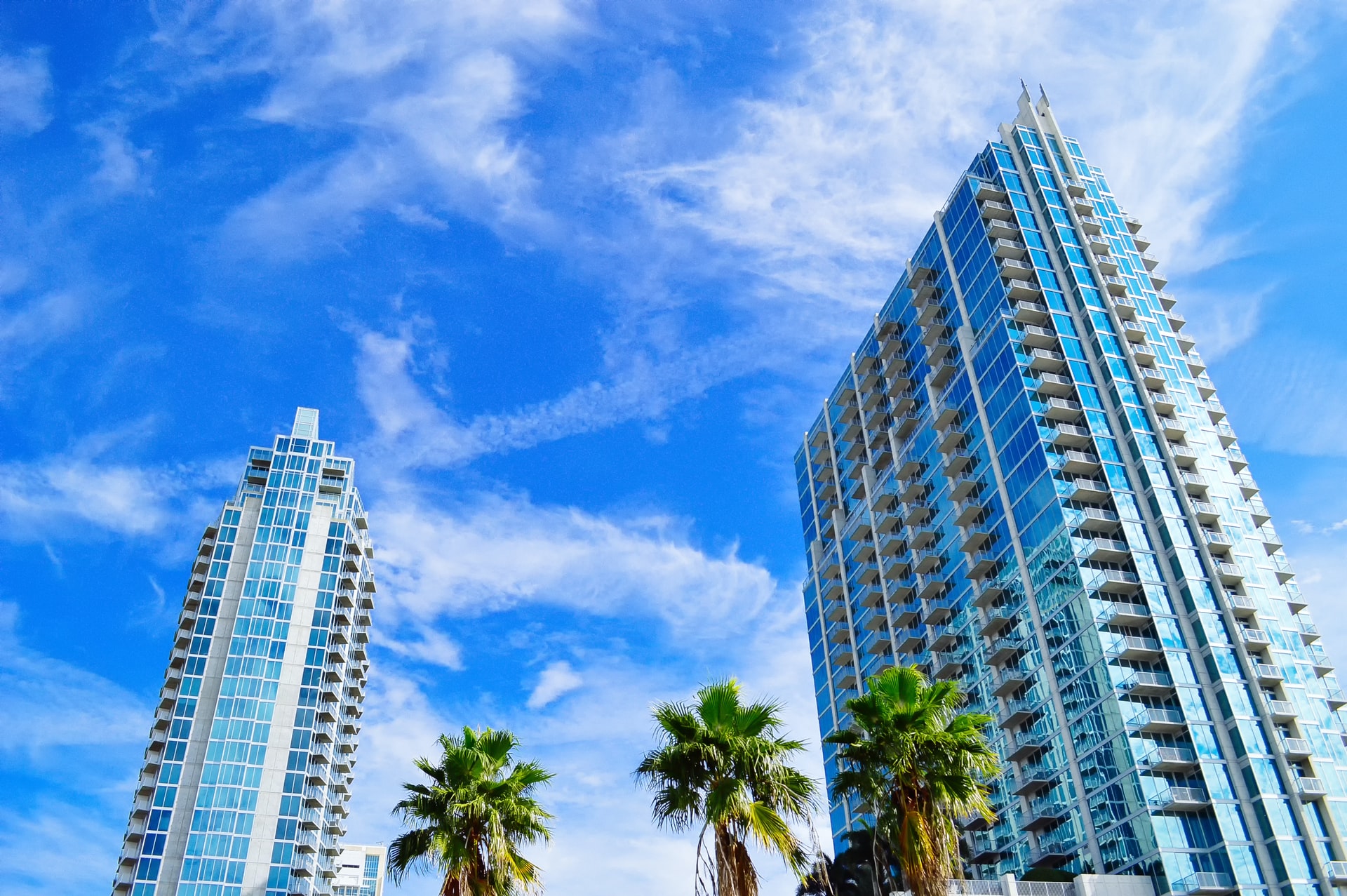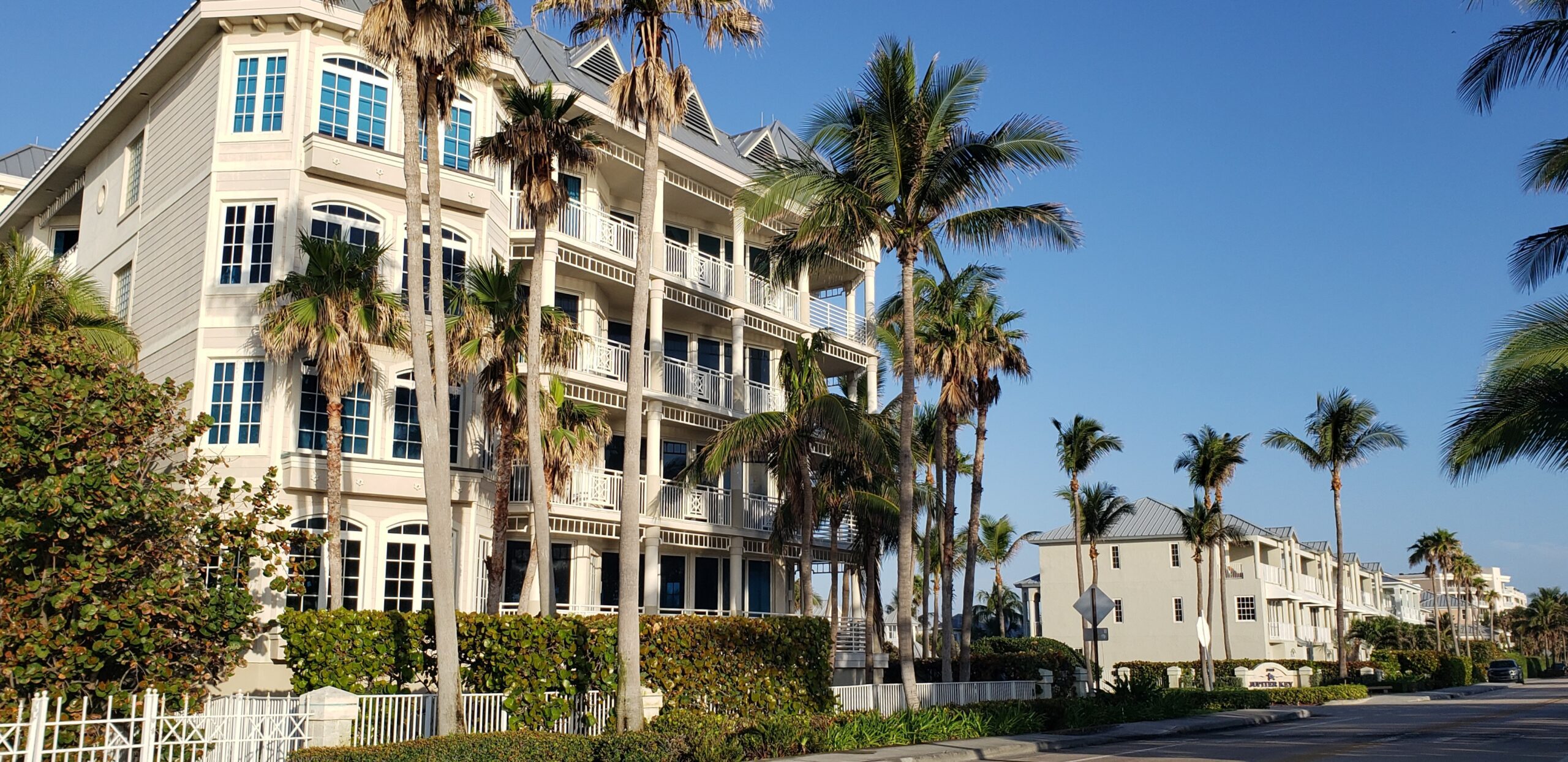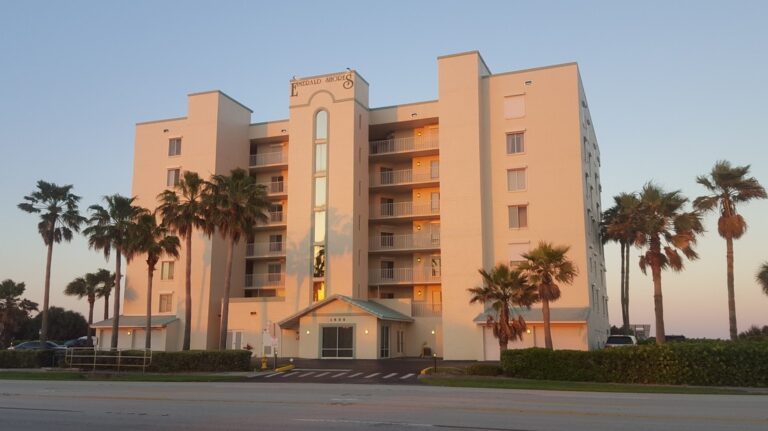Condominiums
Does your retirement plan include downsizing into a condominium? If so, you’re not alone; condos are very popular with Florida retirees! Just be sure you understand all of the ins and outs of condo ownership.

West Palm Beach
Photo by Richard Sagredo on Unsplash
Cooperative vs. Condominiums
In some parts of the country, cooperatives (co-ops) are more prevalent then condominiums (condos) but in Florida co-ops are rare. The primary difference between the two is that a co-op owner has an interest or share in the entire building and a contract or lease that allows the owner to occupy a unit, but they do not own the unit. On the other hand, a condo owner owns their unit, as well as a pro rata share of the common areas. The differences of condos and co-ops affect the type of asset you own and your financing options. Consult your attorney or financial planner to gain a better understanding.
Is Condo-Living Right for Your Retirement?
It’s quite common for new retirees to want to make the move from a large home that they’ve been maintaining for years to a “stress-free” condominium. But it’s also common for many of those people who are full-time condo residents to decide within a few years that condo life wasn’t right for them after all. Sometimes you just have to try something to see if you like it, but it doesn’t hurt to do some soul searching before you make a decision.
There are many significant benefits to condo living: it can make waterfront living affordable, the exterior maintenance is taking care of, it’s convenient to travel (just close the shutters and go), and it’s easy to make friends with your neighbors. But here are a few things about full-time condo living that sometimes drive people away:
- Lack of Storage and Workspace – If you like “stuff” and/or doing big projects, be sure your condo comes with a 2 car garage.
- Lack of Privacy – If privacy is important to you, then when choosing a condo, make sure that your neighbors cannot see (or hear) into your porch or balcony.
- Lack of Control – Keep in mind that you may strongly disagree with a decision that the Condo Association makes. Remember, the majority rules.



Which Condominium Complexes Are the Best Fit for Your Retirement Plans?
Choosing a complex that fits your retirement lifestyle is critical. Most real estate listings don’t describe what it’s like to live in the community, so this is where your REALTOR® can be of great assistance.
How do you envision your retirement lifestyle? Do you want to be in a community that has regularly planned social activities? Do you want a condo complex where you can walk to shopping and restaurants? Are you going to have hobbies that might require a private garage? Are you a boater and want your own boat slip? (Yes, some condo complexes have this.) Will you have pets? If so, how many and what size? Do you plan to be a snowbird and only live in Florida during the winters while possibly renting out your unit during other parts of the year? You must factor in these questions and more when considering a condominium. Look at where the condo is located, what your unit comes with and how the condo association’s rules might affect your planned lifestyle.
Are the Monthly Condo Fees Worth It?
Some retirees are reluctant to purchase a condo because of the monthly association fees. But before you rule out a condo because you think the fees are too high, we suggest you crunch some numbers.
Consider all of the expected maintenance and replacement costs associated with a home. For instance, if your home has a shingle roof that will cost around $20,000 to replace and it has an anticipated lifespan (not the lifespan published by the manufacturer) of 20 years, then the monthly amount you’d have to save to replace that roof is $83. ($20,000 ÷ 20 years ÷ 12 months). Use this same calculation for anything that would have to be maintained or replaced by you in a single-family home but that would be taken care of by the association if you owned a condo. Then add in any savings for internet/cable, water, electric and insurance, etc. Check out our blog post “8 Things Condo Owners Save Money On” for a more comprehensive list. Then, after you are finished adding up the savings you can compare that total to the monthly fees assessed by the condo association.

While condos may be looking really attractive right now, keep in mind that this calculation is only good if the condo association budgets properly. If they don’t, you could be faced with additional assessments that can be quite costly. So it’s critical that you determine if the condo association is well managed and financially sound. Be sure you work with a REALTOR® who is experienced with condominiums and understands all of the documents that need to be obtained and reviewed.

Special Considerations When Purchasing an Oceanfront Condo
If you are contemplating retiring to Florida and buying a condo, then there’s a good chance you are imagining the possibility of an oceanfront condo. If so, you are not alone! Florida’s beaches are teeming with condominiums of all sizes and styles. These condos provide many people who can’t afford a beachfront single-family home with the ability to enjoy a beautiful ocean (or gulf) view from their living room! But oceanfront condos come with a cost of maintenance not found in other condos.
Concrete restoration is an essential task that must be completed periodically on oceanfront condos. Typically, this is done every 7 to 10 years before the building is painted. Simply put, concrete restoration involves removing any concrete that is crumbling and replacing it with fresh concrete. The reason that this task is routinely required in condos close to the ocean is that salt, carried by humidity or rain, eats away at concrete. And once salt gets through cracks in the building, it will cause the steel rebar to corrode which then further breaks up the concrete (known as spalling).
All condo associations close to the ocean must diligently maintain their building’s concrete or the concrete restoration required in the future will be very costly. Many factors determine the likelihood of and extent to which salt will affect the concrete of a building. Two things to watch out for that are known to cause problems are carpeting or tile on balconies, and railings that are bored into the concrete rather than bolted on top. Be sure that the inspector you hire to inspect the condo also provides their opinion on the building itself. It’s also a good idea to ask the condo owner when the last time concrete restoration was done on the building and how much the special assessment was to cover it. When purchasing an oceanfront condo it’s critical to choose a REALTOR® that is familiar with these issues.
